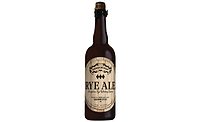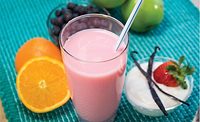Brand loyalty, clean-label trends motivate line extensions
Consumer health preferences drive beverage innovation

In late rapper The Notorious B.I.G.’s hit song “Mo Money Mo Problems,” he sings about how the more money he comes across, the more problems he sees. In the world of beverages, experts note that the more products a brand markets, the more customers the brand will see. Brand loyalty, combined with clean-label beverage trends, impact the brands and products consumers purchase.
According to a July 2015 Nielsen Insights titled “Understanding the Power of a Brand Name,” a brand name can be one of the most valuable assets a company possesses. It can lend credibility to product efficacy and provide an assurance of quality, letting consumers know what they can expect when they buy a product, it says.
Because brand building can be costly and time-consuming, it can be extremely advantageous for established brands to lend their name to a new item in the same category through line extensions, the report states. In fact, line extensions are approximately three to four times more common than “new manufacturer” and “new brand” launches combined, it continues.
For consumers, line extensions create confidence in a new product’s ability to deliver against promises, and can relieve some of the apprehension often associated with trying something new, it says.
Nielsen’s Global New Product Innovation Survey found that from a poll of 30,000 consumers in 60 countries, nearly six in 10 respondents (59 percent) prefer to buy new products from brands familiar to them, and 21 percent say they purchased a new product because it was from a brand they like.
The survey also found that consumers in North America value brand recognition more than consumers in any other region. In fact, it was the second-most-important reason, after affordability that consumers said they purchase a new product, the report states.
A mainstream movement
New health-and-wellness trends seem to be playing a pivotal role in brand extensions. A September 2017 Nielsen Insights titled “Who’s Buying Clean Label Products?” states that 93 percent of U.S. households have purchased a clean-label product at grocery stores, while 70 percent have purchased at a mass merchandiser/supercenter and 31 percent at club stores.
Manufacturers, brands and retailers will need a keen sense of current trends toward product transparency in order to deliver on evolving consumer needs, the report states. Clean label is a spectrum, and companies need to know where the shifts are happening, it adds.
Experts agree that the clean-label trend is a mainstream movement and beverage companies either have to innovate their existing products lines or create new ones in order to meet this popular, fast-growing demand.
For example, Camden, N.J.-based Campbell Soup Co. recently expanded its V8 franchise with V8+Hydrate, a plant-based hydration beverage line that uses sweet potato juice. The new beverage line taps into the naturally occurring electrolytes and glucose of the sweet potato and blends it with water, the company says.
Each 8-ounce can contains 45 calories and no artificial sweeteners, and also is non-GMO and gluten free, it adds. “As the vegetable nutrition experts for over 80 years, we know our consumers are seeking to live healthier lifestyles and turning to products that contain added nutrients and functionality,” said Diego Palmieri, chief marketing officer of U.S. meals and beverages at Campbell Soup Co., in a statement.
“V8+Hydrate is a beverage that responds to key consumer demands with a clean, crisp, great taste, and at a more accessible price point,” he added.
Concord, Mass.-based Welch’s also created a product in response to clean-label preferences. In July, the company expanded its horizons beyond juice and created a new line of sparkling energy drinks: Welch’s Sparkling Plus Energy. The new energy line is made from sustainably farmed Welch’s juice and natural energy from organic coffee extract, the company says.
“We saw a need in the market for an energy drink that actually tastes good,” said John Walston, senior brand manager at Welch’s, in a statement. “The energy drink category is expanding and we are excited to evolve our portfolio with a new product offering outside of the juice aisle.”
Another industry stalwart that extended its product offerings as a result of new health trends is Perrier Sparkling Mineral Water. A brand of Stamford, Conn.-based Nestlé Waters North America, Perrier introduced its Perrier & Juice Drink line, a blend of the company’s original carbonated mineral water with splashes of natural fruit juices. The 8.45-ounce can contains 45 calories and a touch of real sugar, the company says.
As consumer preferences continue to lean toward clean-label products, beverage brands will have to adhere to the market demands and create new products. “Brands can signify quality and inspire confidence,” says Rob Wengel, senior vice president and managing director of Nielsen Innovation in the U.S. “… Sometimes consumers even are willing to pay more for brands they trust.” BI
Looking for a reprint of this article?
From high-res PDFs to custom plaques, order your copy today!





